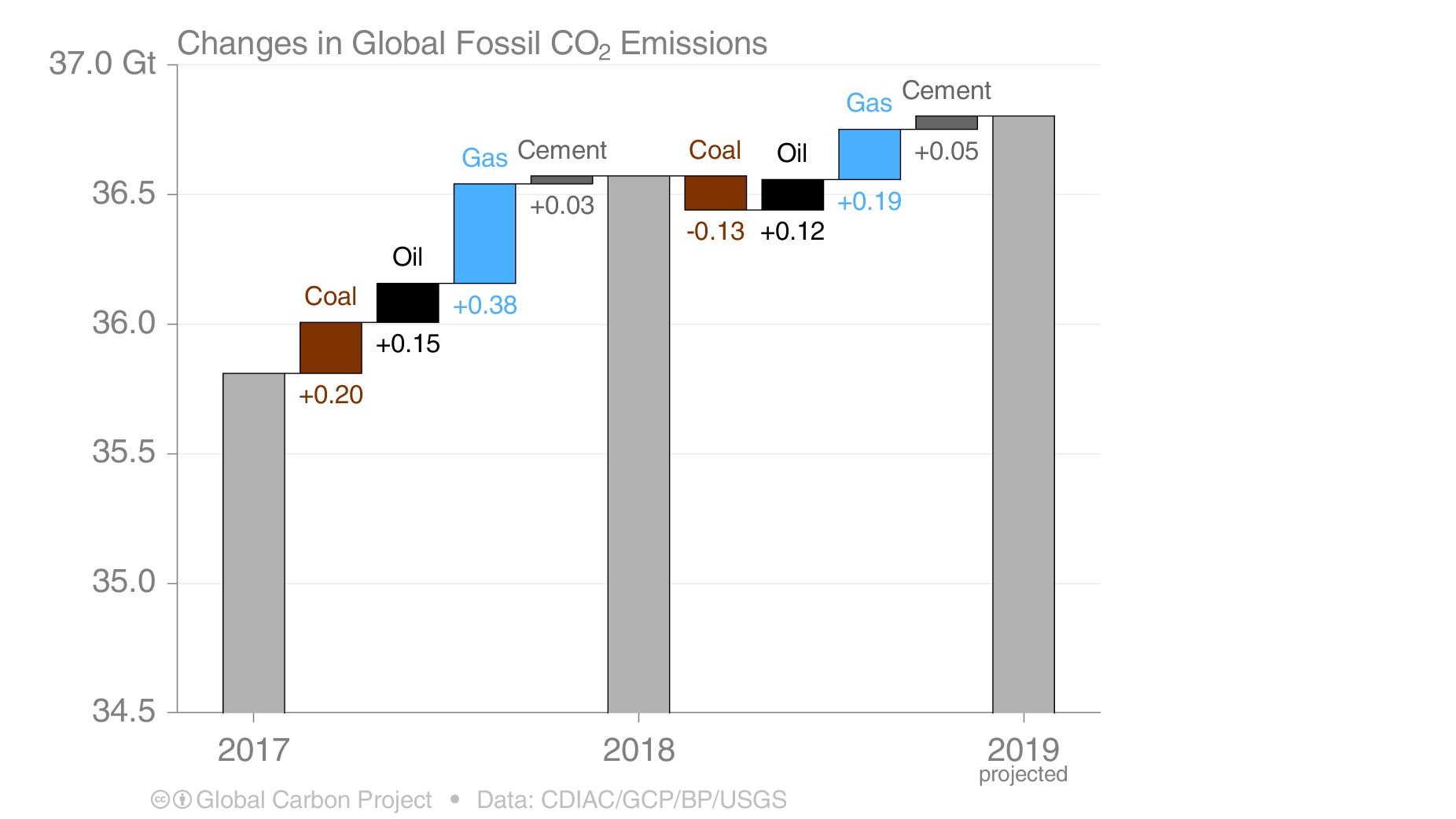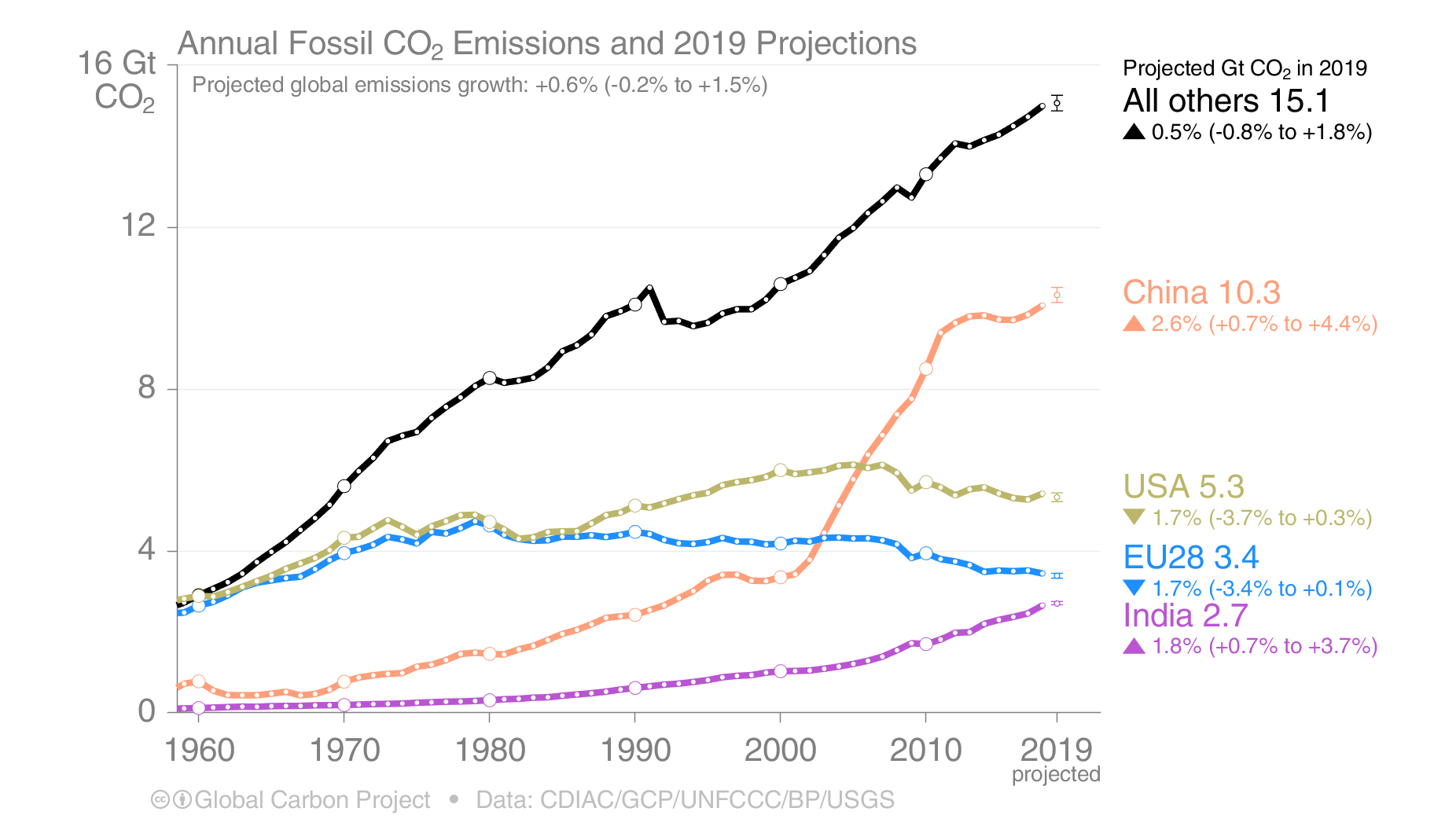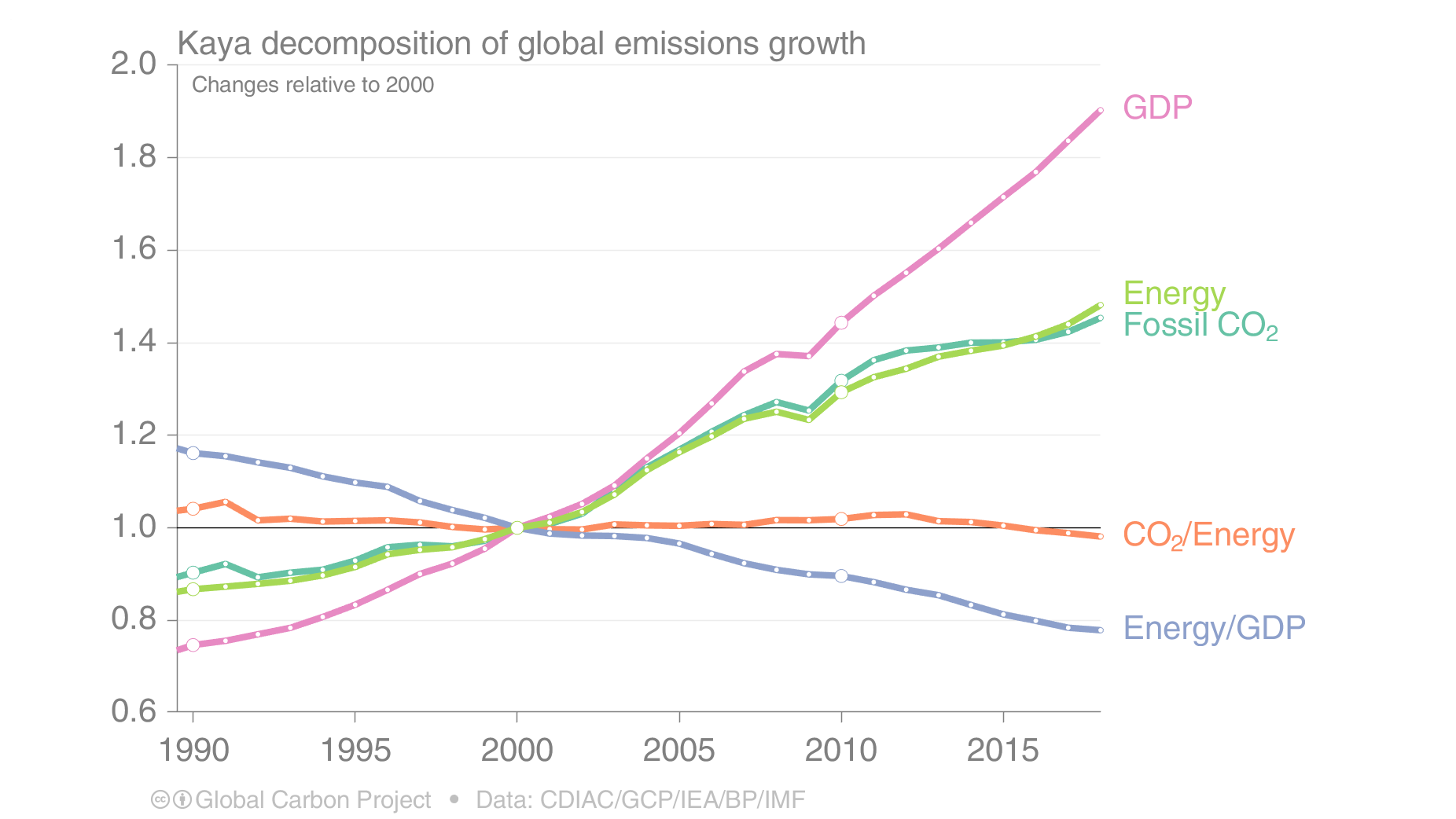CO2 output per year continues to increase
Published by marco on
The article Here’s how much global carbon emission increased this year by Scott K. Johnson (Ars Technica) includes some sobering, if utterly unsurprising charts.
Not Even Close
This first chart is the most sobering one: it shows that we’ve most likely[1] slowed our CO2 production from 2018 to 2019. But we’re still increasing. That is, it’s a positive development, but not nearly enough.
 % increase in fossil-fuel usage
% increase in fossil-fuel usage
We need to get to zero CO2 emissions by 2050 (or maybe even 2040) in order to avoid completely nightmarish scenarios. With the CO2 we’ve already emitted, we’ve built a future for this planet that will be completely different from the ecological pocket that birthed us. It will be less predictable and much more violent and there will be far fewer places that will be considered habitable (for humans).
So we’re ostensibly increasing less (more on that later), but it’s no reason to pat ourselves on the back. We’re still accelerating. We’ve not even topped out, to say nothing of slowing down.
Linked to the Economy
The next chart shows the change in output for different countries/blocs. Europe has been trending downward since 1980, whereas the U.S. began steadily increasing then[2], until about 2005, since when it’s been trending downward as well. From 2000–2010, China increased its output massively but has since plateaued. There was a slight uptick in recent years (matched by the U.S., actually). India has been trending upward slightly non-linearly.
It’s unclear what contributed to these figures: if they’re self-reported, then we have to very careful about the numbers as all of these governments are quite adapt at lying with statistics. (See the second footnote below.)
If the numbers are accurate, then we can see how strongly our economic system affects CO2 output: in 1990, at the Asian Economic Crisis, “All Others” dropped significantly, but recovered quickly. China’s big leap coincides with the U.S. and Europe having moved a lot of manufacturing to China in those decades. That China has now “topped” out might be a mix of market saturation and China’s increased focus on the environment and decreasing pollution.
Efficiency
The final chart shows slight improvements in generating energy without CO2 (the CO2/Energy went down slightly). Similarly, the amount of energy for GDP has also gone down, indicating that we’re figuring out how to generate economic activity with less energy. It’s unclear which factors led to this.[3]
I went into this point in the article, but just want to emphasize that, while I’m not a conspiracy theorist about this, there is a strong interest for all parties to look good relative to one another. That is, they all want to grow their economies while not looking like they’re the CO2 problem. People being people, this will inevitably lead to fake data or massaged data or whatever you want to call it. Somewhere in all of these layers, there are people just trying to get theirs who will fudge already-fudged numbers ad infinitum.
At the end of the day, you really need to check where data is coming from because everyone with a vested interest in the current economy will have immense pressure to lie to make things look better than they are because it’s politically unviable to make changes until the ship has hit the iceberg.
Has China really stopped its increase in CO2? Hopefully, but it’s just as probable that they are hiding data. What about the U.S. and Europe “going green”? To what degree does their outsourcing of heavy manufacturing to China and India contribute to their reduction in CO2 output? Hard to say, but it seems likely. Germany’s “green revolution” is powered by coal, FFS.
What is the incentive for any country to allow accurate reporting of their CO2 output? Other than an altruistic desire to ensure the survival of the human race? Please excuse me while I guffaw.
Consider the possibility that these terrible numbers—trending in the wrong direction—are actual a rosy view of the real numbers.
↩
